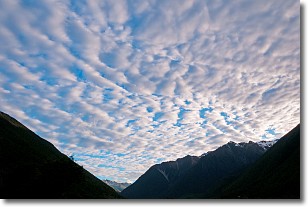Weather Alert in Texas
Flood Warning issued July 3 at 2:15PM CDT until July 6 at 5:30AM CDT by NWS Midland/Odessa TX
AREAS AFFECTED: Brewster, TX
DESCRIPTION: ...Forecast flooding changed from Minor to Major severity and increased in duration for the following rivers in Texas... Rio Grande at Rio Grande at Johnson Ranch near Castolon, Texas affecting Brewster County. For the Rio Grande...including Rio Grande at Johnson Ranch near Castolon, Texas...Major flooding is forecast. * WHAT...Minor flooding is occurring and major flooding is forecast. * WHERE...Rio Grande at Rio Grande at Johnson Ranch near Castolon, Texas. * WHEN...Until early Sunday morning. * IMPACTS...At 12.0 feet (3.7 meters), the river reaches bankfull, minor lowland flooding occurs, and no significant damage is expected. At 15.0 feet (4.6 meters), flood stage is reached. Moderate lowland flooding begins. Roads that lead to Cottonwood Campground and River Road may flood. Stages are practically synonymous with the gage at Cottonwood Campground at Castolon (CSTT2), and therefore represent the reach from Santa Elena Canyon through Cottonwood Campground, where damage may occur. Cattle also graze in the lowlands, and may be threatened. At 19.0 feet (5.8 meters), the river reaches major flood stage. Flooding begins to occur upstream in Cottonwood Campground at Castolon, as stages at each location are practically synonymous. Moderate lowland flooding begins at the gage site, but no damage occurs. The gage is inaccessible, as River Road is impassable at several locations. * ADDITIONAL DETAILS... - At 1:15 PM CDT Thursday the stage was 16.9 feet (5.2 meters). - Bankfull stage is 12.0 feet (3.7 meters). - Recent Activity...The maximum river stage in the 24 hours ending at 1:15 PM CDT Thursday was 17.7 feet (5.4 meters). - Forecast...The river is expected to rise to a crest of 22.3 feet (6.8 meters) late this evening. It will then fall below flood stage Saturday afternoon. - Flood stage is 15.0 feet (4.6 meters). - Flood History...This crest compares to a previous crest of 22.0 feet (6.7 meters) on 06/03/2019. - http://www.weather.gov/safety/flood
INSTRUCTION: Turn around, don't drown when encountering flooded roads. Most flood deaths occur in vehicles. Caution is urged when walking near riverbanks. Please report observed flooding to local emergency services or law enforcement and request they pass this information to the National Weather Service when you can do so safely. Additional information is available at www.weather.gov. The next statement will be issued late tonight at 215 AM CDT.
Want more detail? Get the Complete 7 Day and Night Detailed Forecast!
Current U.S. National Radar--Current
The Current National Weather Radar is shown below with a UTC Time (subtract 5 hours from UTC to get Eastern Time).

National Weather Forecast--Current
The Current National Weather Forecast and National Weather Map are shown below.

National Weather Forecast for Tomorrow
Tomorrow National Weather Forecast and Tomorrow National Weather Map are show below.

North America Water Vapor (Moisture)
This map shows recent moisture content over North America. Bright and colored areas show high moisture (ie, clouds); brown indicates very little moisture present; black indicates no moisture.

Weather Topic: What is Snow?
Home - Education - Precipitation - Snow
 Next Topic: Stratocumulus Clouds
Next Topic: Stratocumulus Clouds
Snow is precipitation taking the form of ice crystals. Each ice crystal, or snowflake,
has unique characteristics, but all of them grow in a hexagonal structure.
Snowfall can last for sustained periods of time and result in significant buildup
of snow on the ground.
On the earth's surface, snow starts out light and powdery, but as it begins to melt
it tends to become more granular, producing small bits of ice which have the consistency of
sand. After several cycles of melting and freezing, snow can become very dense
and ice-like, commonly known as snow pack.
Next Topic: Stratocumulus Clouds
Weather Topic: What are Stratus Clouds?
Home - Education - Cloud Types - Stratus Clouds
 Next Topic: Wall Clouds
Next Topic: Wall Clouds
Stratus clouds are similar to altostratus clouds, but form at a
lower altitude and are identified by their fog-like appearance, lacking the
distinguishing features of most clouds.
Stratus clouds are wider than most clouds, and their base has a smooth, uniform
look which is lighter in color than a nimbostratus cloud.
The presence of a stratus cloud indicates the possibility of minor precipitation,
such as drizzle, but heavier precipitation does not typically arrive in the form
of a stratus cloud.
Next Topic: Wall Clouds
Current conditions powered by WeatherAPI.com




